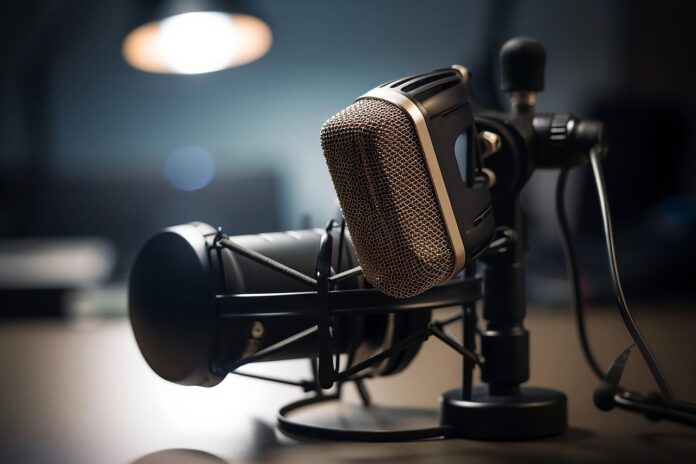How to Start a Podcast for Beginners
Podcasting has exploded in popularity over the past few years, opening up creative opportunities to share your ideas, stories, or expertise with a wide audience. Whether you’re looking to build a brand, connect with a community, or simply have fun, starting a podcast is a fantastic way to express yourself. This guide will walk you through the essential steps you need to know to start your very own podcast from scratch. How to Start a Podcast for Beginners
1. Define Your Concept and Goals
Find Your Niche
Before diving into the technical aspects, it’s important to define your podcast’s purpose. Ask yourself:
- What topics am I passionate about?
- Who is my target audience?
- What unique perspective can I offer?
Finding your niche can help set your podcast apart in a crowded market and ensures you have engaging content that resonates with listeners.
Set Clear Goals
Decide what you want to achieve with your podcast. Are you planning to entertain, educate, or motivate your audience? Setting clear objectives from the outset can shape the tone and direction of your episodes and help you measure success along the way.
2. Plan Your Content
Episode Structure
Outline a typical episode structure. Consider these elements:
- Introduction: Greet your listeners and introduce the topic.
- Main Content: Organize your main discussion segments with clear transitions.
- Interviews or Special Segments: Think about bringing guests or diversifying the format.
- Conclusion: Summarize key points, give a call-to-action, or tease future episodes.
Script or Outline
Depending on your comfort level, you may choose to script your episodes word-for-word or simply create an outline. A script can help maintain a smooth flow, while an outline offers more spontaneity—decide what works best for you.
Frequency and Duration
Decide how long each episode will be and how often you plan to publish new episodes. Consistency is key to maintaining and growing your audience, so choose a schedule that is realistic for your lifestyle and content production pace. How to Start a Podcast for Beginners
3. Get the Right Equipment
Essential Gear
While you don’t need to break the bank when starting out, investing in quality equipment can significantly improve the listening experience. Here are some basics:
- Microphone: Choose one that suits your budget; USB microphones are popular for beginners.
- Headphones: A good pair of closed-back headphones helps with accurate monitoring during recording and editing.
- Computer and Software: Use recording and editing software that’s accessible and user-friendly; many free or low-cost options (like Audacity or GarageBand) are available.
Recording Environment
Aim for a quiet, echo-free space for recording. Simple sound treatments—like foam panels or even household items such as pillows and blankets—can reduce unwanted noise and reverberation. How to Start a Podcast for Beginners
4. Recording and Editing
Recording Tips
- Test Your Setup: Do a few test recordings to adjust levels and ensure clarity.
- Speak Clearly: Maintain a steady pace and clear diction.
- Avoid Interruptions: Minimize background noise and interruptions to keep the recording smooth.
Editing Process
Editing is where you refine your episode. Remove mistakes, awkward pauses, or background noise. If you’re new to editing, many online tutorials can guide you through basic editing techniques. Consider using software that provides features like noise reduction, equalization, and multi-track support to polish your audio.
5. Choose a Hosting Platform
Why Hosting Matters
A podcast hosting platform stores your audio files and distributes them to podcast directories (e.g., Apple Podcasts, Spotify, Google Podcasts). This step is crucial in making your podcast accessible to your audience.
Selecting a Host
Look for hosting services that offer good analytics, an easy-to-use interface, and reliable customer support. Compare pricing plans, storage limits, and additional features such as custom website integration before making a decision.
6. Branding and Promotion
Create a Distinct Identity
Branding sets the tone for your podcast. Develop:
- A Name: Choose something memorable and relevant to your content.
- Cover Art: Visually appealing artwork can attract new listeners—consider working with a graphic designer if needed.
- Intro and Outro Music: Music contributes to the mood and helps signal to your listeners that your episodes have started and finished.
Market Your Podcast
Promotion is an ongoing effort. Strategies include:
- Social Media: Engage with potential listeners on platforms like Twitter, Instagram, and Facebook.
- Collaborations: Partner with other podcasters or influencers to reach new audiences.
- Listener Engagement: Encourage listener feedback, incorporate Q&A segments, or create dedicated online communities to foster a loyal following.
7. Launch and Grow
Initial Launch
Plan a launch that creates buzz:
- Publish Multiple Episodes: Consider releasing 2-3 episodes initially to give new listeners a taste of your content.
- Leverage Networks: Share your launch with friends, family, and online communities where your target audience might be active.
Monitor and Adapt
After launching your podcast, regularly review listener feedback and analytics. Understand which episodes resonate most with your audience and adjust your content strategy accordingly. Continuous improvement will help your podcast grow over time.
How to Start a Podcast for Beginners
Starting a podcast can be an exciting journey, filled with creative opportunities and challenges alike. From refining your concept and planning your content to getting the right gear and honing your editing skills, every step brings you closer to creating a show that resonates with your listeners. With consistency, passion, and a willingness to learn from your audience, your podcast can grow into a meaningful platform for sharing ideas and stories with the world.
Read More: Natural Supplements for Energy: Your Guide to Feeling Revitalized Without the Jitters
News Site: News9.live
